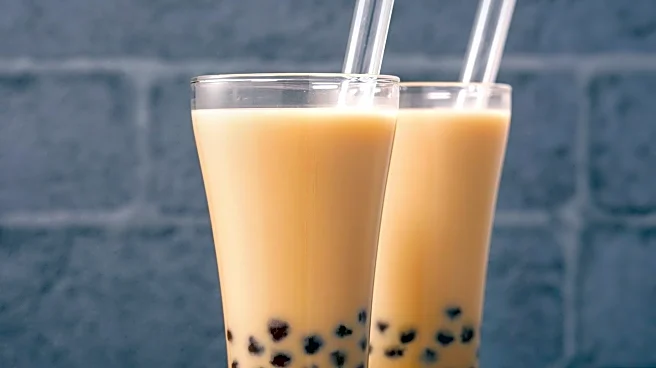What's Happening?
Consumer Reports conducted tests on boba pearls from major brands such as Gong Cha, Kung Fu Tea, Trader Joe’s, and WuFuYuan to assess the presence of heavy metals, including lead, arsenic, cadmium, and mercury. Although none of the products exceeded safety thresholds, some contained concerning levels of lead. This has led experts to recommend treating bubble tea as an occasional indulgence rather than a daily habit. The U.S. bubble tea market is rapidly growing, with over 6,600 shops nationwide, and is projected to double by 2028. The global bubble tea market was valued at $2.63 billion in 2024 and is expected to reach $4.78 billion by 2032, with significant growth in the U.S. market.
Why It's Important?
The findings from Consumer Reports highlight potential health risks associated with the consumption of bubble tea, particularly due to lead exposure. Lead is known to cause long-term harm in adults, including increased risk of high blood pressure, cardiovascular problems, and kidney damage. Pregnant women and young children are especially vulnerable to the toxic effects of lead, which can lead to reduced fetal growth and preterm birth. As the popularity of bubble tea continues to rise, consumers need to be aware of these risks and consider moderating their intake to minimize exposure to lead.
What's Next?
Consumer Reports suggests that while the tested levels of lead in bubble tea products are not alarmingly high, consumers should treat bubble tea as an occasional treat. The organization bases its 'level of concern' on California Proposition 65, which sets the maximum allowable dose levels for lead at 0.5 micrograms per day. Trader Joe's has discontinued selling its Instant Boba Kit, which had the highest lead levels among the tested products. Consumers are advised to monitor their overall lead exposure from various food sources and ensure adequate intake of key nutrients to mitigate health risks.









